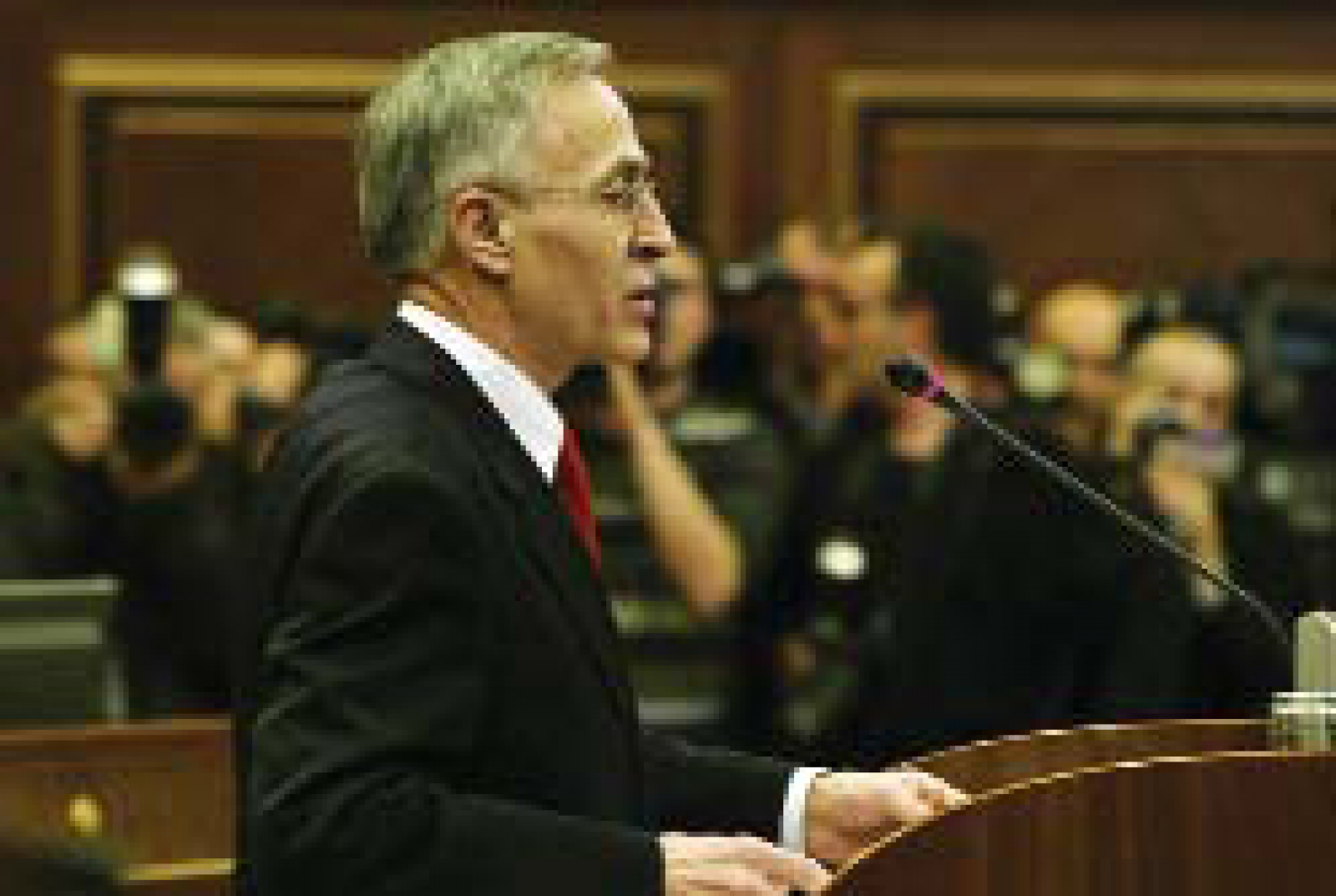
SHARE
Kosovo declared independence in February after lengthy U.N.-sponsored talks with Serbia failed to produce an agreement on Kosovo's status. The declaration was welcomed by Washington, London, and Paris, but derided by Moscow and condemned by Belgrade, which vowed never to recognize what it considers an illegitimate act of a breakaway province. In Kosovo's capital, Pristina, majority Albanians rejoiced, recalling Slobodan Milosevic's murderous campaign of expulsion in 1999. But the celebratory mood has been tempered by the challenge of how the world’s newest country can assert sovereignty over Serb-inhabited territory, particularly in northern Kosovo, and establish mechanisms for peaceful coexistence.
With NDI assistance, Kosovo's parliament is preparing to serve as the country's chief political institution. New rules are promoting debate on legislation and formal questioning of ministers. Assembly minutes are now published on its website. Committee staff are researching legislation and organizing public hearings at which civic groups testify. Members of parliament are holding office hours throughout Kosovo, allowing citizens to air their views on public policy issues. NDI is assisting a women's MP group on gender-related legislation.
NDI also is working with political parties representing Kosovo's Albanian, Turkish, Roma, Bosniak and Serb communities as they develop policies that address citizen needs. The Institute is reaching out in particular to Kosovar Serb politicians seeking constructive ways to engage in Kosovo's political system. Young graduates of NDI training academies are winning public office at the local level and participating in the long-term process of building inclusive politics into Kosovo's frayed ethnic fabric.
The Institute's support of civil society groups focuses on nonpartisan election observing, grassroots advocacy and government accountability. The Kosovo Democratic Institute is monitoring the work of parliament and local councils and reporting to the public on legislative performance. NDI is helping to foster collaboration among high school students in eight communities by training on communication skills, community advocacy, and intercultural dialogue. And NDI is leveraging its longstanding civic networks around Kosovo to support citizen roundtables with elected officials and members of Kosovo's constitutional commission to discuss women's and minority rights in the new constitution.
Kosovo faces considerable political challenges, not the least of which is how to incorporate Serbs and other minorities into a political system dominated by Albanians. Building pluralistic institutions and creating democratic avenues for political participation for all of Kosovo's citizens is the most promising way to overcome these challenges.
–
Published on July 7, 2008


